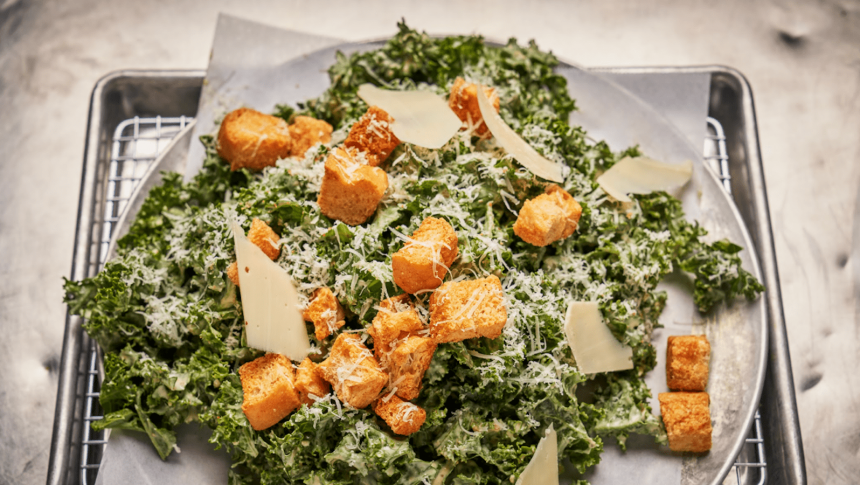Every Fourth of July, Americans gather to celebrate the nation’s birthday by firing up the grill and watching fireworks in honor of the signing of the Declaration of Independence. However, July 4th also holds another significant anniversary – the creation of the beloved Caesar salad. In 1924, Italian immigrant chef Caesar Cardini created this iconic dish in Tijuana, Baja California, by throwing together odds and ends from his kitchen to please a group of Americans seeking to escape Prohibition-era rules.
Despite its popularity, the traditional Caesar salad, with its anchovies, raw egg yolk, and Parmesan cheese, poses a challenge for those with dietary restrictions such as vegans or lactose intolerance. As the demand for plant-based alternatives grows in response to climate change concerns, chefs have been developing vegan versions of the classic Caesar salad using innovative ingredients like tahini, nutritional yeast, and capers to replicate the original flavors.
Restaurants like Boxcar Pizza in Portland, Oregon, have successfully adapted their Caesar salad dressings to be vegan-friendly while maintaining the traditional umami flavor profile. Similarly, New York City’s Scarr’s Pizza and the fast-casual chain Dig have introduced vegan Caesar salads that have become customer favorites despite containing no animal products.
While the journey towards a more sustainable diet may pose challenges, the creative process of developing plant-based recipes like the vegan Caesar salad can be rewarding for chefs like Gerardo Lalo Gonzalez and Matt Weingarten. By offering delicious alternatives to traditional dishes, these chefs are not only meeting the demands of customers with dietary restrictions but also making a positive impact on the environment and food industry as a whole.






